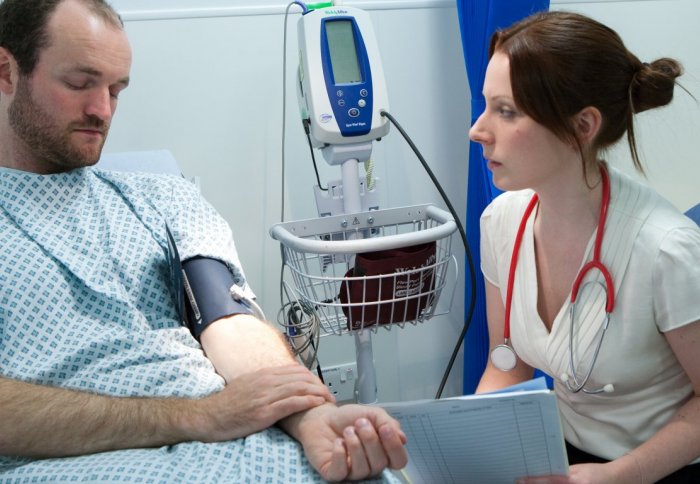Researchers to apply maths to improve healthcare

Imperial researchers have been given a funding boost to convert healthcare data into useful tools for doctors, using mathematics.
The EPSRC Centre for Mathematics of Precision Healthcare will bring together mathematicians with researchers in computing, engineering and medicine. Funded with a £2 million grant from the Engineering and Physical Sciences Research Council, the researchers will take data from the healthcare sector and turn it into information and tools that are useful to inform clinical decisions and public health campaigns to improve the overall health of people in the UK.
A long-term aim is to have a health system where clinical interventions and improvements in national public health strategy are intrinsically linked to the benefit of patients.
– Professor Mauricio Barahona
Department of Mathematics
Professor Mauricio Barahona from the Department of Mathematics, who will lead the Centre, said: “We are essentially trying to bring new mathematical tools to tame data sets of relevance in healthcare. Although there is a huge amount of data out there, and an increasing array of computational methods, there is a need to bring new mathematical ideas to the analysis of such problems.”
Using network-based methods, the mathematicians in the centre will aim to transform data into something that is intelligible and useful for colleagues working in medicine and public health.
The hope is that doctors will be able to use information about individual patients combined with population level data, including lifestyle and socioeconomic factors, to produce patient outcomes based on better decision making.
Professor Barahona said “Using population data on its own is useful in the context of a disease outbreak, for example, but to treat an individual well, we don’t just need to look at their current health concerns; we also have to see the bigger picture of their life and community, as well as their progression in time.”
In this way, mathematics could help the health service to make decisions about individual care, based on a holistic analysis of available data. It can also inform public health campaigns and the group will be turning to social media – Twitter in particular – to engage with patients.
The approach has been termed “precision healthcare”; that is, an approach that takes account of individual variability in genes, environment, and lifestyle from the individual to the populations.
Professor Barahona said: “A long-term aim is to have a health system where clinical interventions and improvements in national public health strategy are intrinsically linked, to the benefit of patients.”
The new centre is part of a £10 million EPSRC initiative to use maths to tackle problems such as cancer, heart disease and antibiotic resistant bacteria.
The Life Sciences Minister, George Freeman, announced the initiative on Wednesday 16 December. He said: “Maths and statistics aren’t the first sciences that come to mind when we talk about healthcare innovation. But they have a very important part to play in developing 21st century solutions to the challenges facing clinicians every day in the NHS. That’s why we are investing £10 million in five new Mathematical Sciences in Healthcare Research Centres up and down the country, to help doctors gain a better understanding of diseases, make faster diagnoses and plan better, more targeted treatment for patients.”
Article supporters
Article text (excluding photos or graphics) © Imperial College London.
Photos and graphics subject to third party copyright used with permission or © Imperial College London.
Reporter
Nancy W Mendoza
Communications and Public Affairs